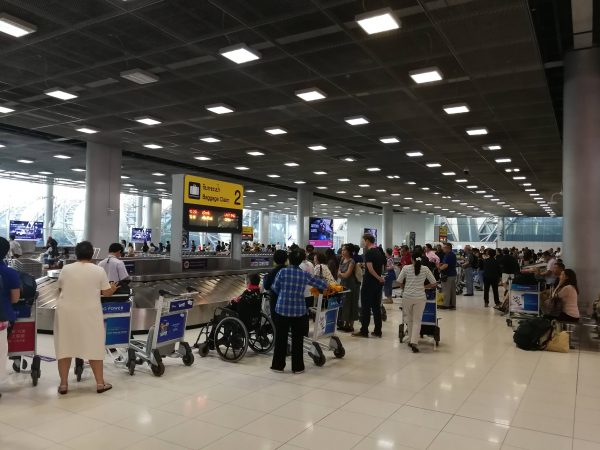CHIANG RAI, 7 May 2020: It’s not in the fine print and airlines flying domestic routes in Thailand appear to be in no rush to explain your flight might end with 14 days in quarantine.
Thailand’s quarantine rules when you disembark after a domestic flight differ with each province and airlines are not helping when they fail to flag the rules on their website booking pages.

Last Friday, the country’s Centre for Covid-19 Surveillance Administration clarified that domestic travellers arriving in Bangkok would not have to self-quarantine for 14 days, but for foreigners travelling from Bangkok to Chiang Mai, for example, they will most certainly face a spell in quarantine.
Provinces in northeast Thailand such as Phitsanulok, Buriram, Nakhon Phanom as well as southern provinces Trang and Krabi all have strict 14-day quarantine rules for all domestic airline passengers.
Mae Hong Son in the far northwest corner of Thailand around 400 km from Chiang Mai introduced an outright ban on foreigners entering the province.
The official CCSA words on the subject are simple enough; only essential domestic travel is allowed under the current emergency decree that extends to 31 May.
Understandably, restaurant owners who even in the best of times relied on domestic tourism to survive during the rainy season months were hoping last week’s softening of lockdown rules would mean Bangkok residents (Thai and foreigners) would quickly resume their domestic travels.
Airlines are flying to all the popular destinations in northern Thailand, but until provincial governors end the 14-day quarantine rule domestic travel will fail to kick-start a much-needed economic recovery.
Travel suppliers, hoteliers and restaurant owners across the country recognise that their only hope of survival this year lies with the domestic travel market (mostly Bangkok residents).
For travel suppliers in the provinces, there are two questions on everyone’s lips. When will domestic travel resume without any obstacles and when will the Chinese return? Covid-19 has ripped the heart out of their businesses. Restaurants are down to just a few tables, and the workforce in the hospitality sector has reduced by at least 50%. Chinese travellers who almost overwhelmed Thailand’s tourism industry a year ago are now viewed as the only saviours who can secure survival for the tourism trade this year.
The Thai Chamber of Commerce told the Bangkok Post last week it fears unemployment in Thailand could peak at 10 million later this year mainly caused by losses in the service sector and tourism. The country’s workforce is estimated at 38 million.
According to a World Bank assessment on 28 April, the Thai government has introduced monetary packages since January, with the most recent in early April.
Packages include soft loans and relaxed loan repayments, reduced social security contributions, and tax deductions for SMEs linked to them retaining staff.
The most significant measure is a cash transfer of THB5,000 per month for six months for informal workers not covered by the Social Security Fund.
However, the World Bank forecasts Covid-19 economic damage may cut GDP from plus 2.9% late last year to a negative 3 to 5%.
For a first-hand account of what can happen when you book a domestic flight to Chiang Mai and surprise you discover you are heading for 14-days quarantine, see journalist Matt Hunt’s account of a new normal domestic flying.







